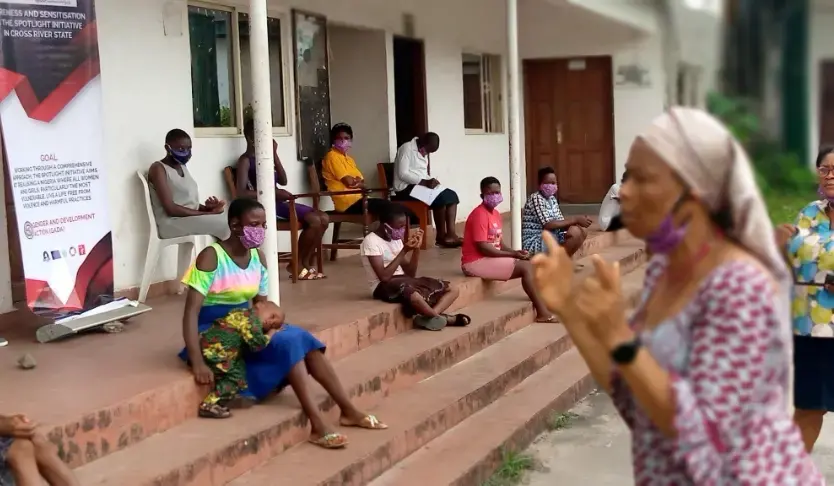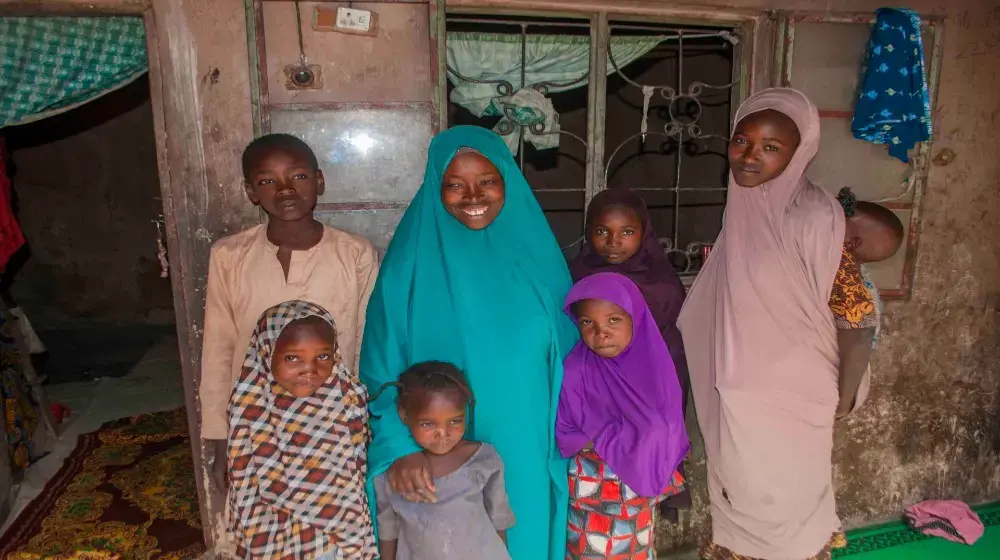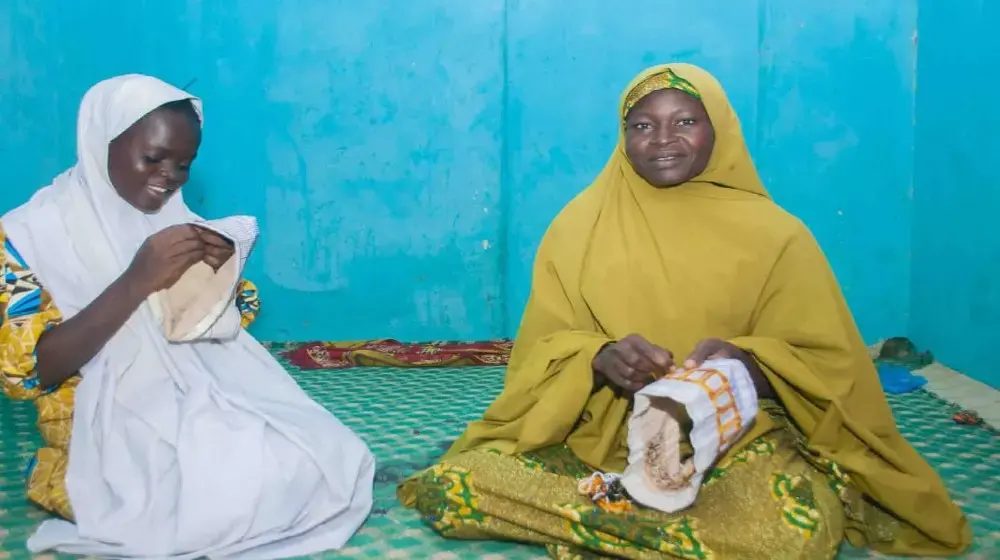IMPLIMENTING PLANNED ACTIVITIES DURING COVID19
As the numbers of those infected with the COVID-19 increases globally, a need to adhere to the World Health Organisation’s (WHO) prevention and treatment guidelines made UNFPA Nigeria and its implementing partners to adopt different approaches in the implementation of planned activities.
In the implementation of a community sensitization programme, under the Spotlight Initiative in Cross River State, Gender and Development Action (GADA), an implementing partner of UNFPA, successfully organized a four days sensitization workshop for 100 participants drawn from two different local government areas of Calabar South and Calabar Municipal without compromising specific guidelines for preventing the spread of COVID19 infection.
Participants were drawn from street hawkers and vulnerable youths. Others were Cameroonian refugees, the Muslim community, displaced persons, members of the Christian community, adolescents on the state social register and children from foster care homes, and villages.
The sensitization was centred on the elimination of violence against women and girls in the state. It also had interesting sessions including creation of safe spaces, out-of-school girl’s empowerment programme and the creation of traditional advocacy platforms for ending gender-based violence (GBV), harmful practices and the promotion of access to sexual and reproductive health rights.
In complying with the rules for minimal distance between participants, facilitators ensured each group consisted of 15 participants only. The venues were outdoor settings, rather than enclosed ones. This approach was consistent with WHO guidelines that meeting venues be properly ventilated to prevent the spread of COVID- 19 during gatherings.
In spite of the ‘unusual’ setting of the workshop, the feedback showed that participants had increased knowledge of the subject matter and facilitators were excited that the interactions bred trust and boosted confidence among participants who looked forward to participating in other programmes.
“In some instances, sharing experiences became personal interviews for some participants,” a facilitator said. “They spoke about limited socio-economic opportunities required for adolescents and young people to develop into healthy, educated and productive adults.”
With safety being an added item of the agenda, participants had questions on “social distancing” prescribed for limiting the spread of COVID-19. Facilitators were able to provide clarifications on this non- clinical approach and offer sensitisation on safety measures for preventing further spread of the virus.
Participants were taught proper handwashing techniques and how to become advocates for self-isolation in their compounds. They also received items such as face masks, soap, gloves, hand sanitisers and IEC materials.
Future activities will factor in the capacity to predict, budget for and implement emerging issues such as pandemics. Also, such activities would take a system-wide approach, so as to strengthen overall outcomes in delivering Sexual Reproductive Health and Rig





